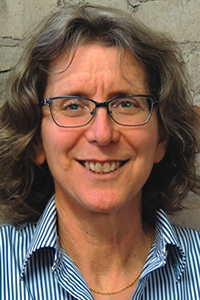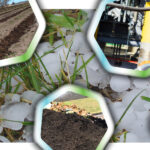
Nora Goldstein
BioCycle January 2016
When BioCycle was founded as Compost Science in 1960, a U.S. composting industry did not exist. In fact, for the first 15 or 20 years, much of the equipment and systems advertised in BioCycle were “repurposed” from other industries, e.g., agriculture and mining. Slowly but surely, in large part spurred by states’ adoption of yard trimmings disposal bans and an end to ocean dumping of biosolids, an industry emerged, with equipment and systems specifically designed to help convert raw organic waste streams into manufactured compost products.
In 1991, the industry had evolved to the point where a national trade association — the Solid Waste Composting Council (forerunner of the US Composting Council (USCC)) — was created, with much of the funding provided by major U.S. corporations, including Procter & Gamble, Dupont and several national waste management companies. Composting was viewed by this industry group as a tool in integrated waste management and was applied primarily to processing of mixed municipal waste streams (MSW).
Much of the USCC’s work focuses on compost markets, e.g., its Seal of Testing Assurance certification program. More recently, the USCC began referring to composting facilities as compost manufacturers who are in business to produce compost that can be utilized in landscapes, green infrastructure, agriculture, home, community and schoolyard gardens, and soil remediation. Incoming feedstocks for these manufacturers are typically source separated organic waste streams — not mixed MSW. And compost manufacturers have built high-value markets for their composts and blends.
Despite this success, the majority of organic waste generated is still disposed as trash. And the solid waste industry continues to earn the most money by throwing MSW away, which has been the backdrop upon which the U.S. composting industry has had to evolve and compete. Manufacturing compost is a much different business than disposal, and inherently has higher operating costs.
BioCycle editors believe there is a critical need for the composting industry to pivot away from being a “disposal alternative” and towards its role as manufacturers of high value products that build healthy soils, conserve water, grow healthy food and sequester carbon — all contributing to climate-resilient communities. Compost manufacturers create jobs and boost economic development. The composting industry has a strong foundation upon which to do this big pivot, starting with the recognition that compost products are commodities; and compost manufacturers, and their sister sector, anaerobic digestion, are essential components of a low carbon economy.
One state in the U.S. that gets the urgency to pivot is California, where Gov. Jerry Brown’s proposed 2016-17 budget — in the category of mitigating short-lived climate pollutants — includes $100 million for CalRecycle to expand organics management infrastructure, and $55 million for the California Department of Food & Agriculture to invest in healthy soil initiatives and dairy digesters. There is also strong interest in linking wasted food prevention and food rescue into the cycle of organics management.
Throughout 2016 — starting with BioCycle’s 30th Anniversary West Coast Conference, April 4-7 in San Diego, CA — BioCycle will be presenting strategies and case studies to accelerate the big pivot. The first step is embracing what business organics recyclers are truly in.
BioCycle welcomes Craig Coker as its Senior Editor. Craig has been a long time Contributing Editor to BioCycle. We are pleased to have him on our team.









